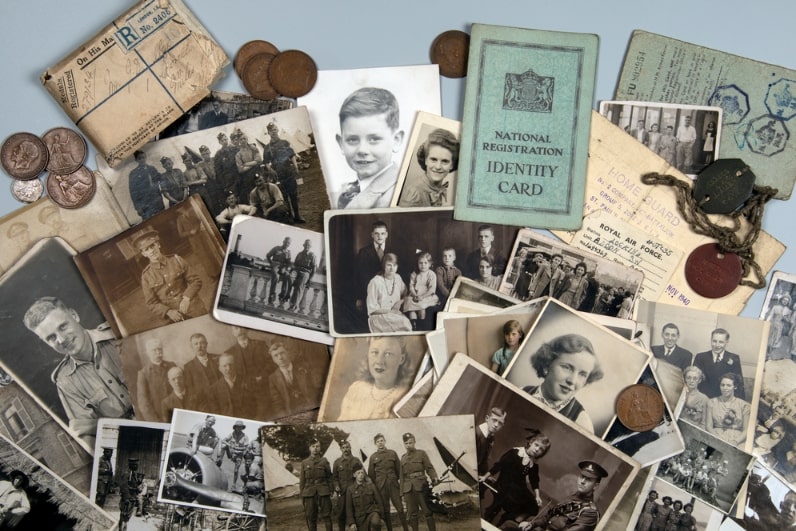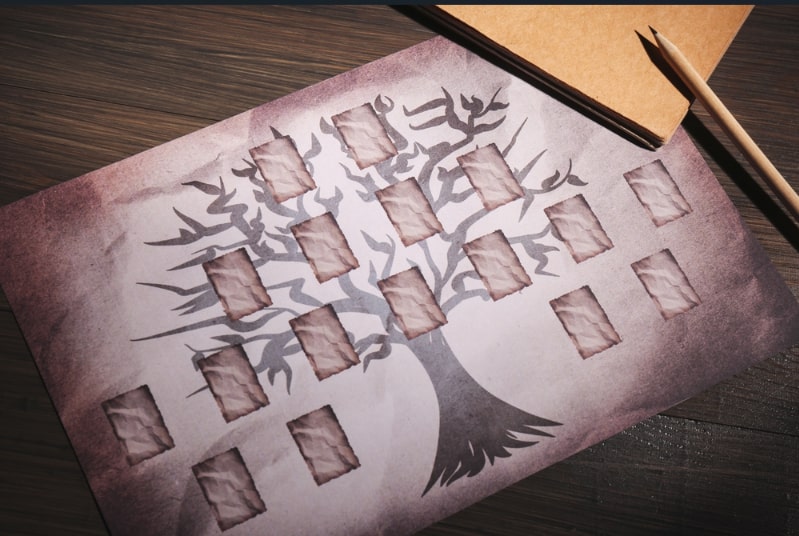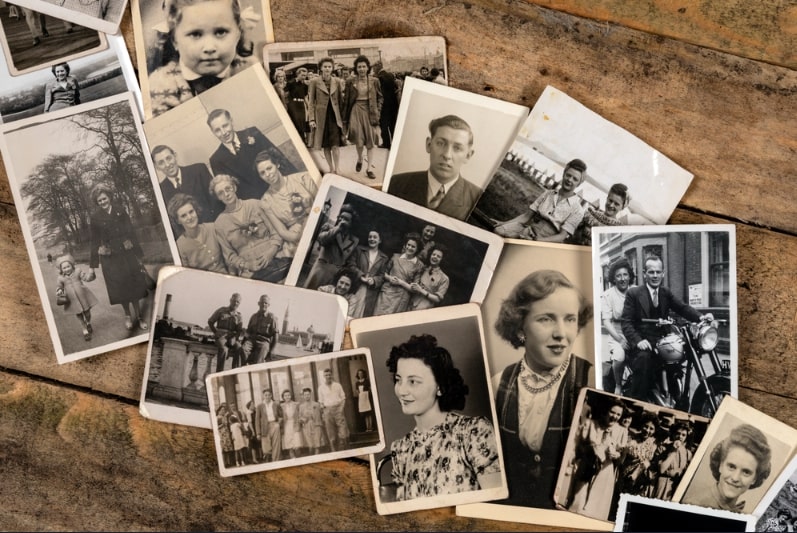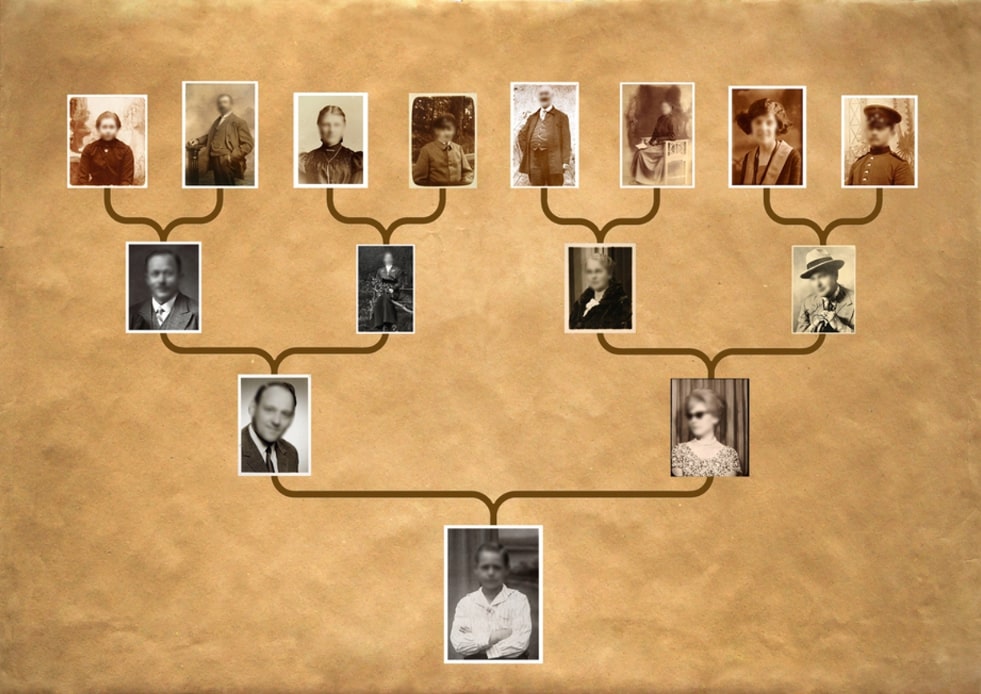There are many reasons for wanting to trace your family tree, but figuring out how to find ancestors can sometimes be frustrating. Finding relatives can provide crucial health and medical information and preserve your family history. You may uncover a historically significant story about one of your ancestors or learn you’re connected to a long-lost fortune.
Tracing the story of your ancestors is exciting and fun. Learning more about how your family members persevered during difficult times can be inspiring. Your search may reveal relatives and stories that have been lost with time. For adoptees and others who are unsure about their biological family, genealogy can be a way to fill in some missing pieces about their heritage

Photo credit: https://depositphotos.com/home.html
If you need the concept of family trees explained more thoroughly, this article will provide a great foundation. Read on to learn more about tracing your ancestors. You’ll discover how to find your family tree and how joining a genealogy site like GenealogyBank can make your search more fruitful.
How to Find Ancestors: 12 Tips for Uncovering Your Family Tree
What is genealogy? Genealogy is the study of one’s heritage and family origins – but it’s more than the sum of its parts. It is a way of bringing your family’s story to life. Genealogy is understanding the relationships between family members and learning about your ancestors’ roles across history.
Before worrying about how to find your ancestors, ask why you are interested in researching your family history. Knowing your goals may help you narrow your search efforts to uncover the facts you are most interested in. Don’t be surprised if your objectives change throughout the process. The more you learn about your family heritage, the more you may want to know.
(1) Talk to Your Family Members
Oral histories are one of the first pieces of information to get lost in a family. Elders pass away or forget important details of their youth. Stories get misremembered or downright embellished as they are passed from generation to generation. Start by talking to the oldest members of your family first. Record their stories with as much detail as possible. Even if some facts are incorrect, family members can provide valuable information that can lead you to subsequent discoveries.
(2) Start with What You Know
You never know what information will fill in another piece of your family’s history. Even things like a family surname meaning can provide insights. Fill in your family tree as well as you can. Include full names, nicknames, birth dates, locations, and other information.
Take a look through your personal records and any family records you have access to. Once you have organized all available information, you can identify the gaps in your family research.

Photo credit: https://depositphotos.com/home.html
(3) Explore Obituaries and Death Records
Obituaries are rich sources of information that go beyond just dates and causes of death. Obituaries and other death records may include:
- Details of the deceased’s life
- Names of the deceased’s children
- Past residences
- An unknown spouse(s)
- Details about the deceased’s parents, grandparents, and siblings
- Name of the cemetery and funeral home
As you go through the process of finding your ancestors, make sure to conduct an obituary search. These records can reveal a surprising amount of information about how your family members lived. Obits are more than death records — they can be profoundly moving documents that reflect the love others had for the deceased.
(4) Dive into Historical Newspapers
Not every newspaper archive is created equal. The archive at GenealogyBank includes over 15,000 newspapers covering more than 330 years of history. No matter where your ancestors lived, there is a good chance you will find more than one piece of information about them by searching old newspaper articles.
Your ancestors do not need to be famous to appear in their local newspaper. Wedding announcements, graduations, the return of a relative from military service, or stories of business openings are just some of the mentions you can expect to find.
(5) Search Birth, Marriage, and Other Vital Records
Birth records and marriage records can contain a wealth of valuable information. Birth and marriage certificates may not be public information, but official documents are not the only sources to help trace your ancestors. Baptism records, as well as birth and wedding announcements from newspapers, are also helpful.
These types of records may include addresses, sibling names, photos, maiden names, and even occupations. Vital records can reveal new facts or confirm information you already suspected but had not verified.

Photo credit: https://depositphotos.com/home.html
(6) Use Military Records
Military records are often forgotten about in a family tree search. Not only will military records reveal personal details like place and date of birth, height, weight, and hair color, but they can also include information about next of kin and where someone served.
Official records are only part of the story. All military branches publish yearbooks that are similar to high school yearbooks. Graduates can purchase these publications once they have completed training. Yearbooks contain photos and general information and may include signatures and messages from other trainees.
(7) Research State Records
State records include criminal, court, and inmate records. If you believe an ancestor may have been arrested or incarcerated, state records will help you confirm the details. These records also include vital information such as written or digital documentation about the births, deaths, and marriages that occur within its borders.
(8) Research Historical Books
Historical books describe more than just famous battles or significant events. You can find helpful information in historical books, such as:
- Theater programs
- Town hall meeting records
- Academic awards and merits
- Eulogies
- Biographies
- Memoirs
These types of records can include fascinating personal details about your ancestors and the time periods in which they lived. Researching historical books on your own is possible, but it can be complicated. However, when you join an ancestry community like GenealogyBank, you can access a data bank of thousands of books.
(9) Leverage the U.S. Census Records
No journey to finding your family would be complete without a search of the U.S. Census Records. Before the internet streamlined ancestry research, genealogists relied on census records to learn more about where people lived, how many children they had, what they did for a living, and more. The first U.S. Census was taken in 1790, shortly after the inauguration of President George Washington. Census records provide a glimpse into how Americans lived in the past.
Census records can be fascinating to research while you trace ancestors. They are living documents that record the everyday life of all citizens regardless of income or social status.

Photo credit: https://depositphotos.com/home.html
(10) Use Government Publications
Various miscellaneous records fall under the category of “government publications.” These can include all types of historical records, such as:
- Widow’s claims
- Land grants
- Military records
- Pension records
- Historical maps
- American State Papers
- Burial maps
Documents such as these can significantly benefit families with a strong military history. If you know or suspect your ancestors participated in the Revolutionary War, Civil War, World War I, or World War II, searching government publications can help you find information about their service and their lives outside the military.
Keep in mind that government publications often include information about the spouses and children of America’s service members.
(11) Go to Your Local Library
Before the days of home computers, the question of how to find your ancestry always involved a trip to the library. The library remains one of the best sources of historical information that can help your search. You may find newspaper archives, city directories, and local historical documents that lead to information about your family.
Librarians are trained researchers who are happy to help guide you in the right direction – they can even help you find online resources. Remember to take a tablet to jot down notes to make the most of your time at the library. Many library resource books are not available for check-out.
(12) Join with Genealogy Communities
If you want to make “finding my family tree” more accessible and enjoyable, consider joining a genealogy group or forum. Both online and in-person communities are excellent sources for learning better research methods. Online ancestry groups provide access to tens of thousands of pages of data and the tools needed to refine your search.
Community members share data and often find information for others while doing their research. When you take on the task of “finding my family,” it helps to have an ancestry-searching friend with whom to share your triumphs and frustrations.
Uncover Your Ancestors with GenealogyBank
GenealogyBank can help you figure out how to find ancestors. With more than 330 years’ worth of records to explore, you will find information that will fill in the gaps in your family tree.
GenealogyBank helps turn your curiosity about finding relatives into an inspiring deep dive into your family’s history. Not only will you learn about the achievements, challenges, and heartbreaks of individual ancestors, but you’ll also learn about your family story as a whole.
Let GenealogyBank simplify the family research process so you can spend less time running into dead ends and more time enjoying the search. Learn more about the benefits of joining GenealogyBank today and find a better way to uncover your family history!
Explore over 330 years of newspapers and historical records in GenealogyBank. Discover your family story! Start a 7-Day Free Trial
Note on the header image: family photos and genealogy records. Photo credit: https://depositphotos.com/home.html
